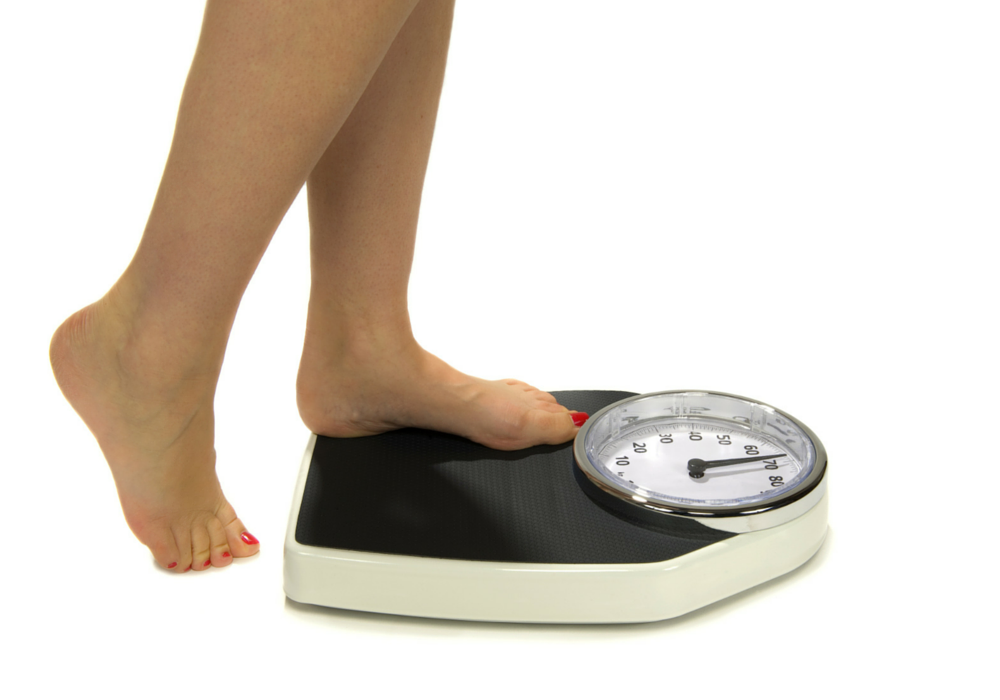Remember the food you eat is the main source of nutrition for your baby and can help your baby’s growth and development. Hence, one of the best things that you can do for your baby is to eat a healthy diet during pregnancy. There are three nutrients that every pregnant woman must include in her diet on a daily basis. Here’s a break-up:
Protein
The amount of protein required by your body increases during pregnancy to help develop the baby and the placenta (the organ which connects the developing baby with the wall of the uterus). Protein also helps fight against nausea and the fatigue that pregnant women feel due to anemia. 90% of pregnant women in India suffer from protein deficiency. Check with your nutritionist about your protein intake or deficiency. If your diet is deficient in protein, ask your doctor for protein supplementation.
How much Protein do you need during pregnancy: Your individual protein requirement depends on your body weight. Generally, you need 0.5 g/day of additional protein intake in the first trimester.
Good food sources of protein: Seafood, lean meat, poultry, milk & milk products, eggs, beans, peas, soy products, unsalted nuts & seeds are known to be good sources of protein.
Iron
Iron can prevent anemia and infections; it can support your baby’s growth and brain development. Some women may find Iron-rich foods difficult to absorb. Here’s a helpful tip - add a Vitamin C-rich fruit with or just after your meal for better absorption of Iron. Avoiding tea 1 hour before and after having an iron-rich meal also helps the body to absorb this nutrient better.
How much Iron do you need: During the entire pregnancy period, an additional 760 mg of iron is needed.
Good food sources of iron: Lean meat, skinless chicken, fish, turkey and well cooked eggs. Vegetarian sources of iron include pulses, legumes, nuts, green leafy vegetables and cereals.
Calcium
Pregnant women need all the calcium they can get and it is important to understand why. Your baby’s bones are developed through the calcium in your blood. The baby’s heart, nerves and muscles depend on calcium for growth. If the calcium intake is not enough, even your bone health is at risk.While calcium is best obtained through food sources, a calcium supplement could help you in meeting nutrition needs during pregnancy. Sufficient vitamin D intake also helps in calcium absorption.
How much do you need: The recommended intake of calcium during pregnancy is 200 mg/day
Good food sources of calcium: Low fat dairy products like skimmed milk, low-fat cheese and yogurt. Fish with edible bones like sardines are high in calcium and so is tofu - a vegetable protein made from soybeans. Breakfast cereals, almonds, oranges, dried-fruits (e.g. apricots) and green leafy vegetables are good sources of calcium too.
Make sure you eat well, keep yourself hydrated and get adequate rest. Have a healthy & happy pregnancy.

Pregnancy is a special moment in everyone's family. There's nothing like the joy of having a baby. But it is also the time for the pregnant woman to be very mindful of what to eat and drink. There are various factors that can affect the development process of your baby if you are not careful, leading to the onset of future diseases as well. It is no hidden fact that almost everything we eat and drink today come loaded with chemicals, and on top of that we also stay in a highly populated environment. All these factors are not only harmful for your health but that of the baby too. We often fail to pay close attention to the food we pick up or the groceries we bring home, taking it for granted that they will be good. Even something as basic as drinking water can affect your health.
According to a recent study conducted by The Endocrine Society based in Washington DC, pregnant women drinking from plastic water bottles could be driving up their risk of having obese babies. The researchers found that the chemical bisphenol A (BPA), a hormone disruptor, is linked to an unborn child's increased risk of obesity. When the child is exposed to BPA, they become less sensitive to a hormone responsible for controlling appetite.
Experts admit they are not surprised by the results, and warned of the need to be aware of environmental factors that can lead to increased susceptibility of obesity.
What is BPA?
Bisphenol A is an organic synthetic chemical compound that is commonly used in making certain types of plastic. As such it is found in a variety of food containers, including polycarbonate plastic water bottles and can linings. It is a colourless solid which is soluble in organic solvents, and to some extent is soluble in water as well. This chemical can interfere with the endocrine system (a collection of glands that produce several hormones) by mimicking estrogen, one of the main sex hormones found in women.
Research indicates BPA exposure is nearly universal. More than 90 percent of people tested in population studies had detectable levels of BPA, and compounds produced when it is metabolised by the body, in their urine.
The Research Study on BPA
Researchers of the study found that mice born to mothers exposed to BPA were less responsive to the hormone leptin, which is sometimes called the satiety hormone. Leptin helps inhibit the appetite by reducing hunger pangs when the body does not need energy. The hormone sends signals to the hypothalamus region of the brain to suppress appetite.
Senior author Dr Alfonso Abizaid, of the Department of Neuroscience at Carleton University in Ottawa, Canada said, "Our findings show that bisphenol A can promote obesity in mice by altering the hypothalamic circuits in the brain that regulate feeding behavior and energy balance."
"Low level prenatal exposure to BPA delays a surge of leptin after birth that allows mice to develop the proper response to the hormone. BPA exposure permanently alters the neurobiology in the affected mice, making them prone to obesity as adults."
To examine how BPA can encourage the development of obesity, the researchers fed pregnant mice BPA in their food. The mice were exposed to doses of BPA that are lower than levels deemed safe by the US Food and Drug Administration and Health Canada. Once the mice gave birth, the researchers gave their offspring injections of leptin at various intervals and then examined their brain tissue and analyzed their blood to gauge the response to the hormone.
Other pregnant mice were not exposed to any chemicals or were exposed to an estrogen chemical called diethylstilbestrol (DES), so their young could be compared to those born to mice that were exposed to BPA.
"This study improves our understanding of how BPA can disrupt the endocrine system in a manner that raises the risk of obesity in animals," said Dr. Abizaid.
Harmful Effects of BPA
"Since BPA has also been linked to obesity in humans, people need to be aware that environmental factors can lead to increased susceptibility to obesity and cardio-metabolic disorders," said Dr. Abizaid.
A report released in October 2016 claimed that plastic bottles contain hormone-disrupting chemicals that can cause cancer, diabetes, ADHD and autism. Yet they are found in thousands of everyday products, ranging from plastic and metal food containers, to detergents, flame retardants, toys and cosmetics. These chemicals are responsible for scores of illnesses - costing the US an astonishing $340 billion in health-related costs each year, the NYU Langone report read.
The most common illness due to endocrine disrupting chemicals is neurological - including attention-ADHD, autism and loss of IQ.

Health experts have highlighted this fact several times before that smoking during pregnancy can lead to serious health issues for the growing baby inside. Nicotine is a potent chemical with the capability of causing havoc for kids and adults alike. The phase of pregnancy is an important phase, where several factors must be kept in mind in order to secure the life of the mother and growing baby. As much difficult as it may be to give up smoking, since nicotine is highly addictive, there is no other way to ensure that your child doesn't face any health problems in the future. Even passive smoking is found to be harmful for health, so one can only imagine how hazardous direct smoking could be. Research studies have found that the repercussions of smoking during pregnancy are such that it could even alter the baby's DNA, leading to abnormalities. A recent study states that nicotine exposure before and after birth may put babies at an increased risk of developing hearing problems due to abnormal development in the auditory brainstem.
The study done by Free University of Berlin in Germany showed that when pregnant mothers are exposed to nicotine, it could lead to abnormal development in kids, such as hampering the auditory brainstem - an area of the brain which plays a role in analysing sound patterns. Children with impaired auditory brainstem function are likely to have learning difficulties and problems with language development.
"If mothers smoke during pregnancy and their children show learning difficulties at school, they should be tested for auditory processing deficits," said lead author Ursula Koch, professor at the Free University of Berlin.
For the study, published in The Journal of Physiology, the team exposed the offspring of the mice to nicotine before birth and via the mother's milk until they were three weeks old - an age that is approximately equivalent to primary school children.
Analysing the brains of the mice offsprings, the researchers found that neurons that get input from the cochlea - sensory organ in the ear - were less effective at transmitting signals to other auditory brainstem neurons in mice exposed to nicotine. Moreover, these signals were transmitted with less precision, which deteriorates the coding of sound patterns. These could be part of the underlying causes for auditory processing difficulties in children of heavy smoking mothers, the researchers said.
"We do not know how many other parts of the auditory system are affected by nicotine exposure. More research is needed about the cumulative effect of nicotine exposure and the molecular mechanisms of how nicotine influences the development of neurons in the auditory brainstem," Koch said.
Living the life of a working woman is not easy. While you are trying to build your career to make a name in the competitive world, your family members seem to be more concerned about when you will marry, settle down and have kids. This is a common debate in various households across the country. You just don't get to hear the end of the drawbacks of late marriage and late motherhood, and that biological clock which keeps ticking. Life decisions such as marriage and motherhood can't be made under pressure, it needs more thought through. Most importantly, the person should be mentally ready for it. There's of course the worry about complications during pregnancy and the ability to conceive at the first place. But here's some good news for career-oriented women and those who are not ready to have a child yet, a recent study states that delaying pregnancy till age 35 can actually make your kids smarter.
This statement contradicts the common belief of the perfect time for women to have healthy kids to be between 25-30 years. The study published in the International Journal of Epidemiology says that children born to older mothers today are more likely to perform better in cognitive ability tests than those born to younger mothers. Perhaps the times are changing!
"Our research is the first to look at how the cognitive abilities of children born to older mothers have changed over time and what might be responsible for this shift," said study lead author Alice Goisis, researcher at London School of Economics and Political Science.
This shift is due to the changing characteristics of women who have children at an older age, the study said. Older mothers today tend to be more advantaged than younger mothers -- for example, they are well educated, are less likely to smoke during pregnancy and are established in professional occupations. This was not necessarily true in the past.
For the study, the researchers analysed data from three longitudinal studies in Britain -- the 1958 National Child Development Study, the 1970 British Cohort Study and the 2001 Millennium Cohort Study. Children's cognitive ability was tested when they were 10/11 years old. In the 1958 and 1970 cohorts children born to mothers aged 25-29 scored higher than children born to mothers aged 35-39. In the 2001 cohort, this result was reversed.
When the researchers took the mothers' social and economic characteristics into account, the differences across cohorts disappeared. This indicates that the changing characteristics of women who have children at an older age were highly likely to be the reason for the differences.
"Cognitive ability is important in and of itself but also because it is a strong predictor of how children fare in later life - in terms of their educational attainment, their occupation and their health," said Goisis.
Putting on weight seems like a breeze while losing those kilos can really be a tough struggle, especially post pregnancy. During pregnancy, the mother needs to eat for two to ensure that the growing baby is getting all the required nutrients. After delivery, it's of course not just a day's work to make all that weight vanish. Exercise is a must and so is a healthy diet, away from junk and processed food. But taking up the responsibilities of the baby hardly leaves any time or energy behind, and this is one of the major reasons why women start ignoring their health and putting on weight. Then there are all those hormonal changes to deal with. More so with all the celebrations with friends and family, and being showered with love and good food, expanding becomes inevitable.
But don't let the pampering spoil you royally. As much as you may convince yourself that all those kilos that you are still continuing to gain is because of "post-pregnancy" it is actually far from the truth. Your post-delivery lifestyle choices are in play here.
1. Eating Habits
According to a new study done by University of Michigan in the US, new mothers keep the weight on by eating food off their child's plate.
2. Lack of Sleep
Sleep in another factor that plays a crucial role. Sleep deprivation is a common issue that new parents face due to constant monitoring of the baby.
3. Food Cravings
Lack of sleep is the instigator of unhealthy lifestyle choices because your mind is not fresh. In new mothers, it often leads to increased food cravings and appetite even if they want a healthy diet, leading to weight gain.
4. Sitting Down for Longer Periods of Time
"Mothers tend to put the needs of their children first, so they might not be exercising or taking care of themselves," said lead author Olga Yakusheva, Associate Professor at the University of Michigan in the US. Little things like spending more time sitting with their kids reading or watching a movie can result in weight gain.
5. Lack of Self-Motivation
In addition, many women really crank up their diet and exercise for a short time to get back to their pre-pregnancy weight and often get discouraged by the results. It is a tough struggle which takes time to help you get the desired body weight. As such they leave exercising all together.
However, if women want to lose the weight, they should cut the calories and work out more as well as take a holistic approach focused on a long-term healthy lifestyle, the researchers suggested.
For the study, the team looked at data for 30,000 women who had given birth between one and four times. Although all the women gained weight due to their age, there was a sharp difference between those who gave birth and those who did not. By the time their children were toddler age, mothers who had given birth had put on at least one pound more each year than those who were childless.










